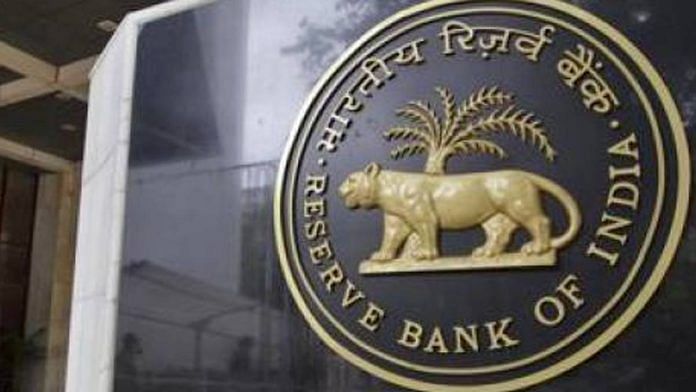New Delhi: The Reserve Bank of India (RBI) Wednesday issued a circular to banks saying they must return all asset-related papers to borrowers within 30 days of the loan being repaid or settled.
This has come as a great relief to lakhs of borrowers, especially thousands of home-owners across the country.
ThePrint looks at why the central bank needed to act, what it has done, and how borrowers will benefit from this move.
Why did RBI need to step in?
The RBI issued a notification — with a copy sent to all banks and other bodies regulated by it — on ‘Responsible Lending Conduct’. In particular, the notification dealt with the release of movable and immovable property documents on repayment or settlement of personal loans.
It’s important to note here that these new rules refer only to personal loans and not corporate loans.
Personal loans, as defined by the RBI, are “loans given to individuals and consist of (a) consumer credit, (b) education loan, (c) loans given for creation/enhancement of immovable assets (for example, housing, etc.), and (d) loans given for investment in financial assets (shares, debentures, etc.)”.
The notification mentioned that a Fair Practices Code periodically issued by the RBI to its regulated entities (REs) since 2003 said that lenders are required to release all property documents once they receive full repayment of the loan or if the loan account is closed.
“However, it has been observed that the REs follow divergent practices in release of such movable/immovable property documents leading to customer grievances and disputes,” the RBI noted, without specifying the nature of such “divergent practices”.
Bankers and borrowers ThePrint spoke to say that the issue lies with the bureaucracy of the banks, and especially in public sector banks. What happens is that, according to them, once the loan account is closed, some bank officials use the process to release the asset documents as a way to harass the customers.
“The asset documents, like the deed of the property in my case, is taken by the bank in its physical form,” a homeowner in Delhi, who is currently in the process of recovering documents from a major public sector bank, told ThePrint.
“But now that I have repaid the loan, the bank officials are saying I should come some other day, or that the documents are now stored in Mumbai, or that the release order has been given to the Mumbai location, but the Delhi office has not received them yet.”
This homeowner said his family has been waiting for six months to get the documents pertaining to their own property.
Several other homeowners alleged that they have been waiting for more than a year, after repaying the loan, to get the documents.
Bank staff ThePrint spoke to said this was because officials at the branch-level have enormous discretionary power, and they use it.
Also Read: Banks’ home loan portfolios set to feel the stress. RBI must devise measures
What has RBI stipulated?
In response to complaints about this issue, the RBI notification said the REs will now have to release all original property documents within 30 days of full repayment or settlement of the loan account.
The borrowers will be given the option to collect the original documents from either the bank branch where they had taken the loan from, or from any other office of the bank where the physical documents are stored.
In addition, this timeline and the place of return of the documents will now have to be mentioned in the loan sanction letters.
The public has also been facing trouble in getting asset documents in case the original borrower passes away. Complaints were brought that banks have created problems in releasing the documents to the legal heirs of the original borrower.
“In order to address the contingent event of demise of the sole borrower or joint borrowers, the REs shall have a well laid-out procedure for return of original movable/immovable property documents to the legal heirs,” the RBI notification said.
It added that these procedures would have to be displayed on the RE websites.
What happens if banks still delay?
The first step in the event of a delay in release of documents will be for the lender to communicate the reason for the delay to the borrower.
“In cases where the delay is attributable to the RE, it shall compensate the borrower at the rate of Rs 5,000 for each day of delay,” the RBI notification said.
If the original documents have been damaged or lost by the lender, they will have to help the borrower obtain duplicates or certified copies and will also have to bear all the associated costs, apart from paying the Rs 5,000 per day penalty if there is a delay past an additional 30 day limit (a total limit of 60 days).
Is this applicable immediately?
No. The RBI has given banks a little time to get their paperwork in order before they can comply with the new rules. The new rules will apply to all cases where the release of documents is to be done on or after 1 December, 2023.
(Edited by Nida Fatima Siddiqui)
Also Read: It’s China & upcoming RBI monetary policy that India is concerned about, not US ratings downgrade



